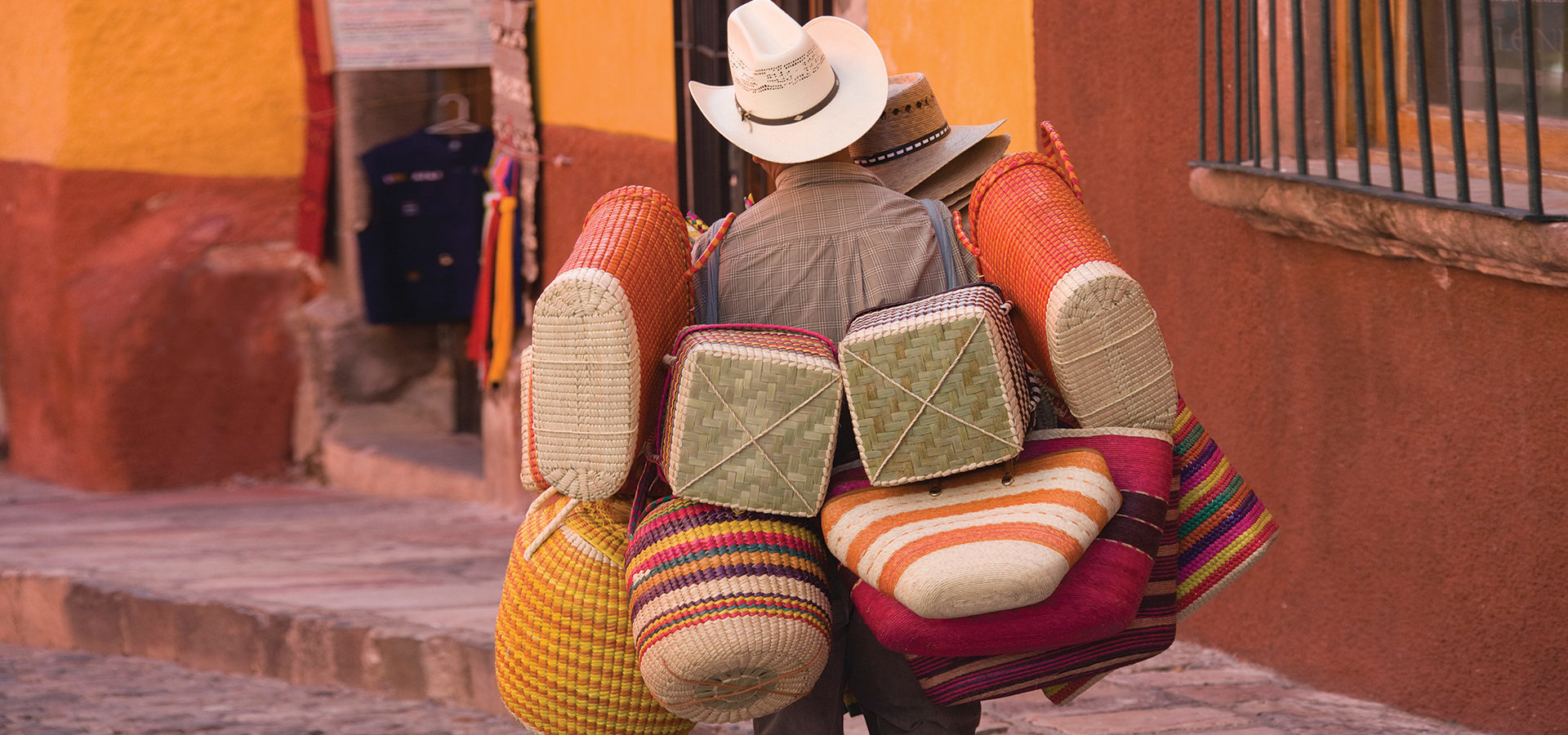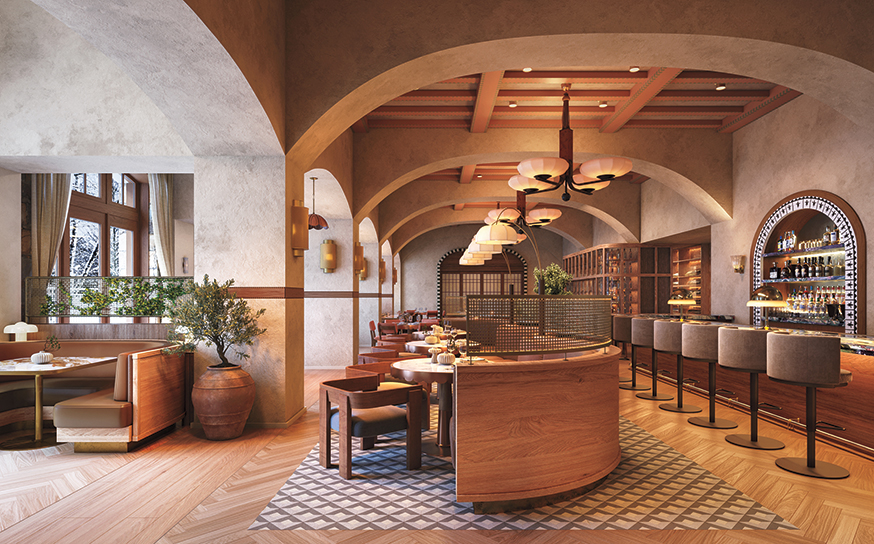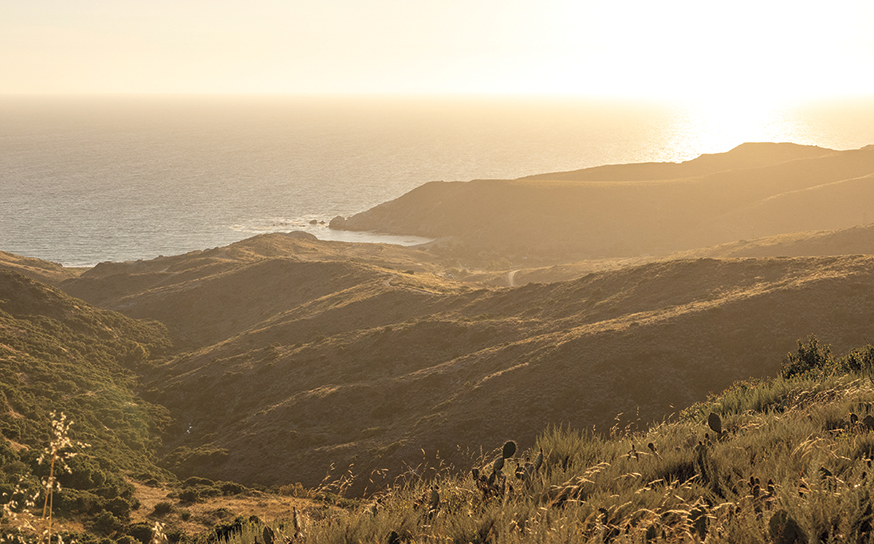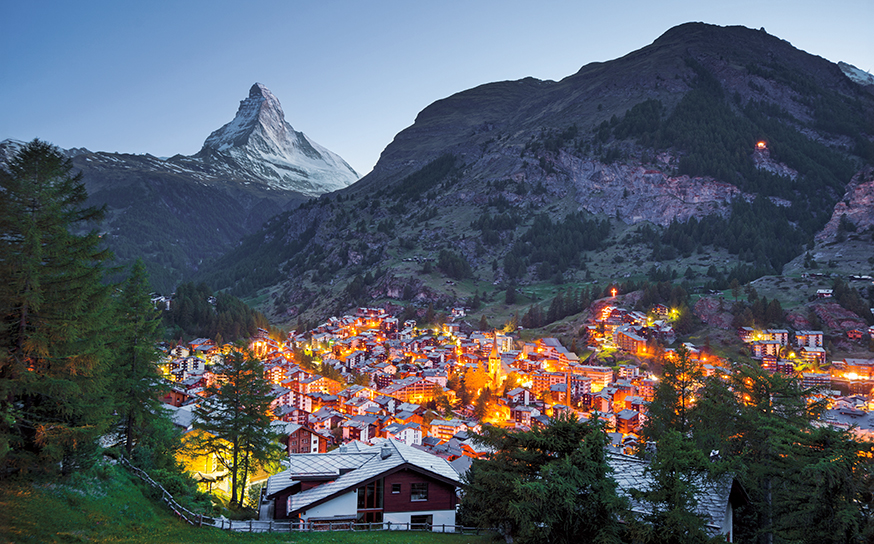Soulful San Miguel De Allende Offers a Feast for All the Senses
El corazón.
- CategoryTravel
- Written byDarren Elms
First, there’s anticipation. The private car rolls through arid grasslands and hills of Guanajuato state in central Mexico, revealing the occasional cactus and roadside restaurant. The expectancy builds slowly during the two-hour ride from the nearest airport as signs begin to appear for your final destination.
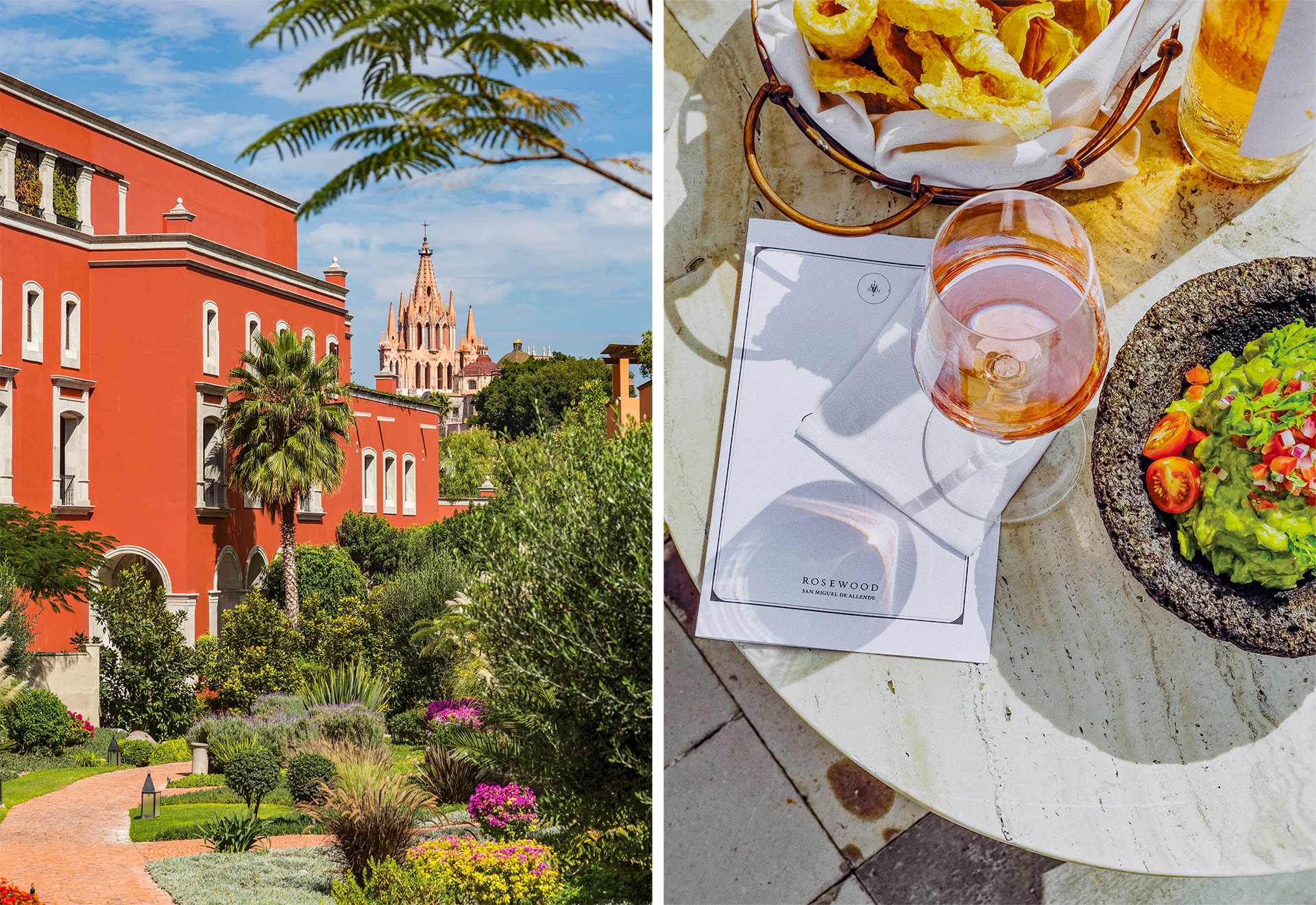
Buildings along your path transition from white and beige to earthy yellows, oranges and reds, as if a magic paintbrush suddenly colored your journey. As the hues become more vibrant, so do the people—tourists and locals commingling on a narrow cobblestone street, a vintage VW Beetle trying to navigate around them while a vendor with a dozen hats stacked on his head looks for customers. There’s the sweet fragrance of blossoms and fresh fruit. There’s music. There’s joy. This is San Miguel de Allende.
A missionary town that dates back to 1542, San Miguel el Grande was an important stopover on Spain’s silver route. It also played a vital role during the Mexican War of Independence and was renamed to honor the famous son and local hero Ignacio Allende in 1826.
The most recognizable appeal of the hillside town is the 16th-century Spanish Colonial Baroque architecture, vividly painted in a warm and welcoming palette. But look deeper, and you’ll find that San Miguel is more than just a pretty face.
How to Get There
There are no airports serving the town of San Miguel de Allende, so you will need to fly to a neighboring city like Guanajuato, Querétaro or León. Expect at least a one- to two-hour car ride from any of these airports. Fortunately, resorts like the Rosewood offer door-to-door shuttle service to make your journey less hectic.
You won’t need a car in San Miguel, so skip the rental. If you’re feeling ambitious, package your trip with a stop in Mexico City, about three hours away.
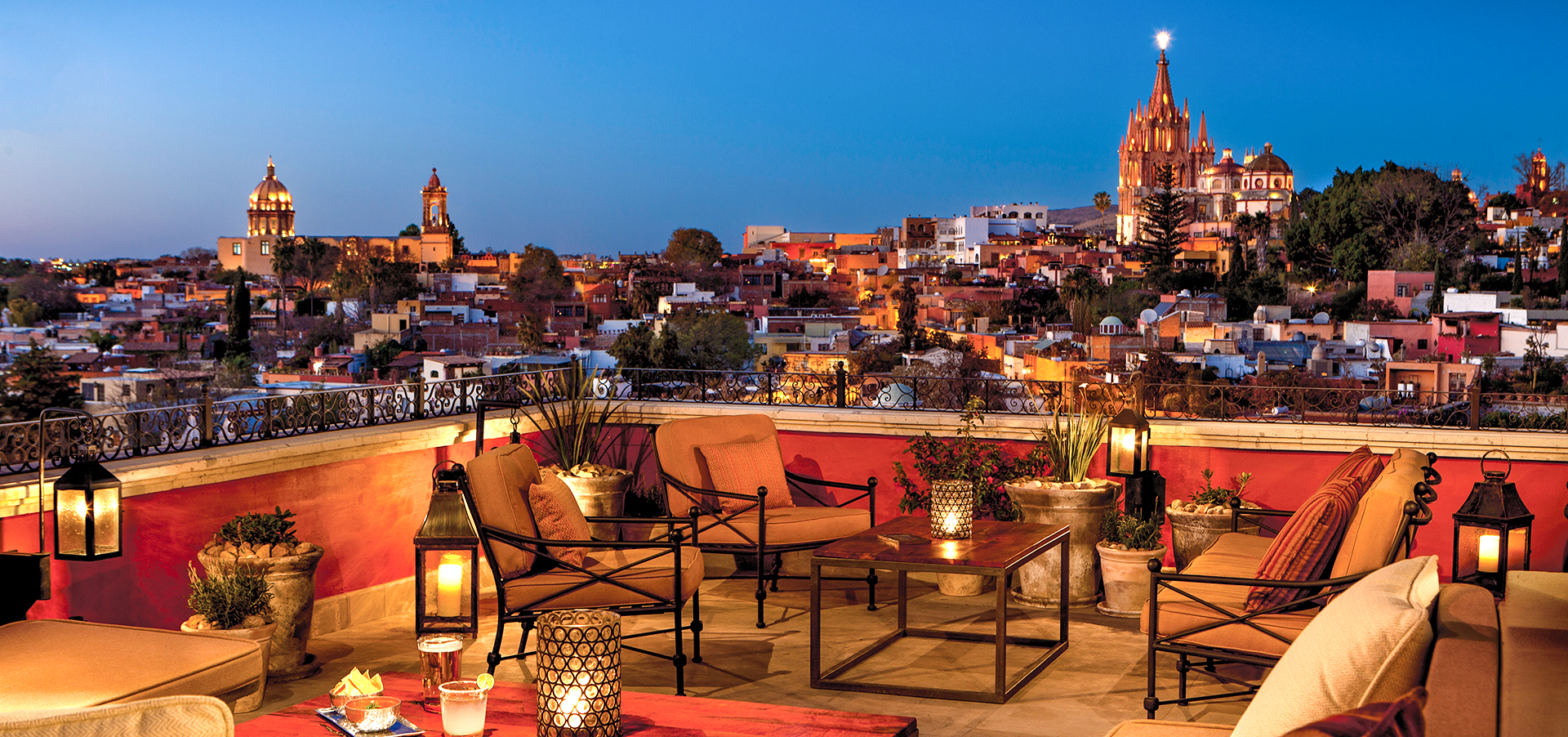
Where to Stay
Though only opened in 2011, Rosewood San Miguel de Allende skillfully recreates the historical charm of this beloved Mexican city. Dramatic courtyards, lush gardens and locally significant art pieces set a beautiful stage upon arrival. Guests can choose from 67 handsome rooms and suites featuring wood-beamed ceilings, hand-carved furniture, fireplaces, spacious bathrooms, balconies and more. If you’re visiting with a large group, the resort also offers private residences for rent, each with a fully functional rooftop, Jacuzzi and grill—perfect for outdoor entertaining.
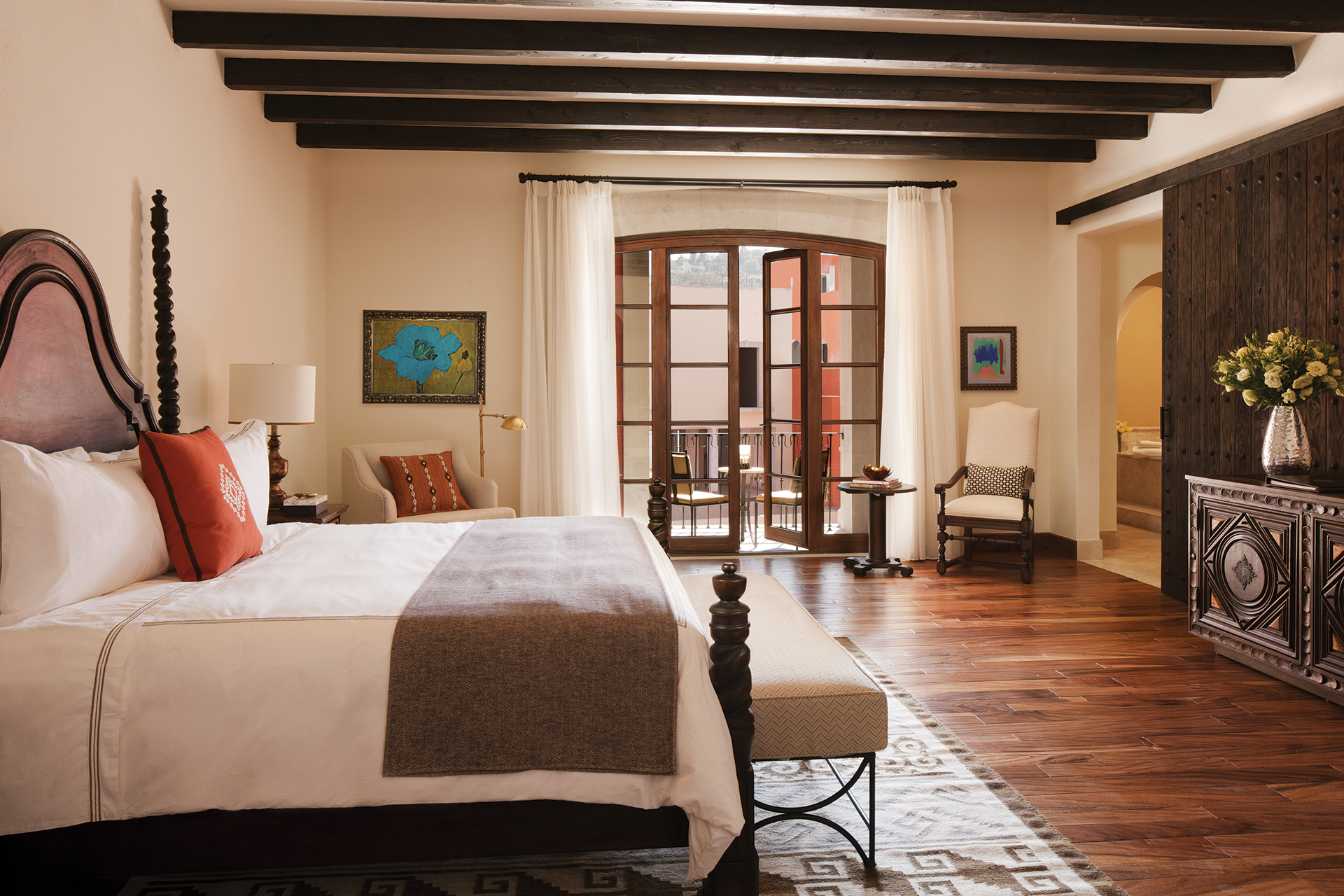
Where to Eat
The Rosewood offers first-rate dining on property. Ideal for both breakfast and dinner, 1826 Restaurant celebrates the region’s rich heritage and culinary traditions. Dine inside or alfresco on farm-to-table cuisine featuring locally sourced ingredients from nearby farms and food producers. The adjacent 1826 Tequila Bar offers more than 120 labels of tequila and more than 20 mezcals—guided by a resident tequilier (tequila sommelier), who will gladly walk you through the process, traditions and folklore behind the vast selection.
Luna, on the Rosewood rooftop, is your destination for tapas, sunsets and spectacular city views. A wonderful place to sit, sip and converse, it will be hard to keep your attention on your company with such an incredible city vista surrounding you.
For special occasions, reserve a seat in La Cava, the private wine cellar paying homage to iconic artist Frida Kahlo, and sample one or more of 800 bottles of wine from Mexico and around the world. The resort will also happily arrange a grilled feast at a private residence or elsewhere on the gorgeous grounds.
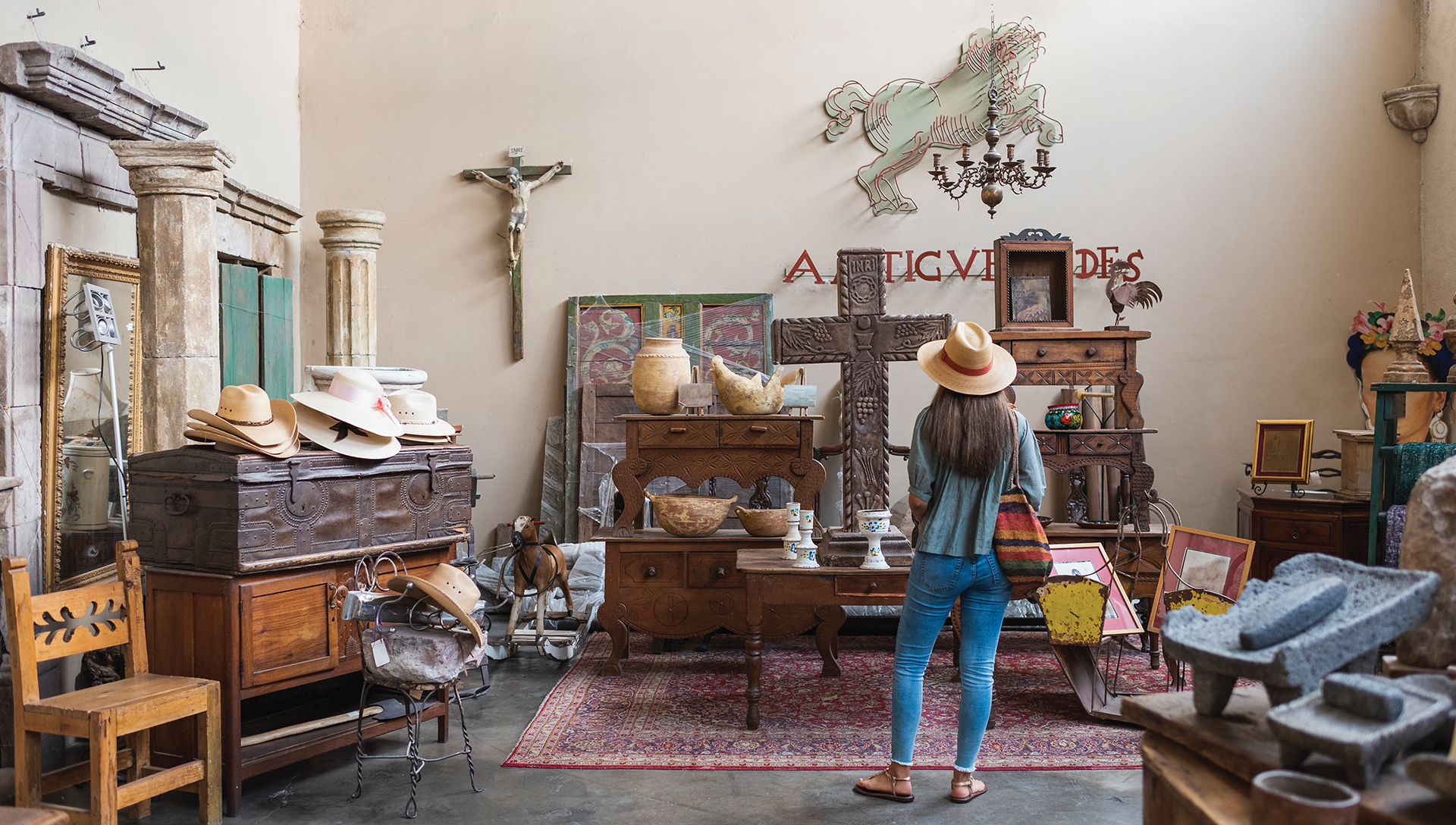
What to Do
Once you’ve taken a dip in the pool and indulged in a signature treatment from Sense, A Rosewood Spa, it’s time to hit the town running. Although small, San Miguel de Allende is layered with quaint streets that climb to the Parish of St. Michael the Archangel and the main square, El Jardin. Though the church itself dates back centuries, the neo-Gothic facade was introduced in 1880 by self-taught architect and master stone-mason Zeferino Gutiérrez. A grand fantasy with soaring turrets, the church is one of the most photographed in Mexico. On most days the plaza outside comes alive with musicians and a variety of food vendors.
Leisurely strolls off this main axis will introduce you to all kinds of shopping, including jewelers, artisans and antiques. Lucas Rise, an Argentinian artist known for his vibrant patterns, recently opened a clothing store called Rise, featuring his flair for color and shape. If you’re interested in his technique, Lucas frequents Rosewood with private art lessons.
Fabrica La Aurora is home to the city’s largest collection of art galleries and design studios, housed in a former textile mill. If you’re looking for folk art, Mercado de Artesanías links three blocks of stalls and storefronts with hand-painted pottery, textiles, toys, tableware and more.
When your shopping bags and stomach are at capacity, take some time to just wander. Enjoy the unevenness of the stone streets under your sandals. Reflect on the charming residential fountains that locals relied on as a water source. Dare to use one of the metal door knockers shaped like a hand on someone’s wooden door. Who knows what waits on the other side?






